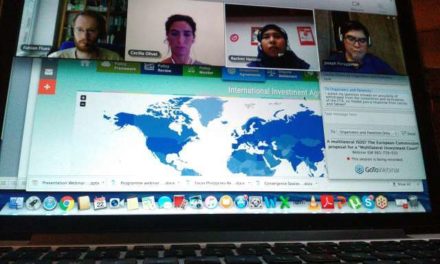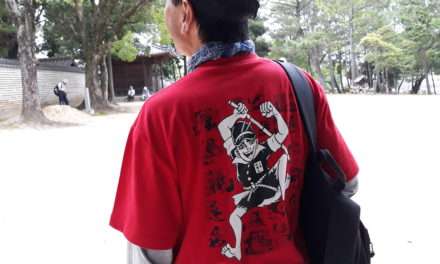Emad Mekay
WASHINGTON, Sep 7 (IPS)
Shalmali Guttal of Focus on the Global South noted, "It is surprising that Indonesia, which was one of the worst hit countries during the Asian financial crisis, would be intolerant of public debates on alternative development and finance policies. In recent years Indonesia has made great strides towards popular democracy. We would hope that the government would continue this trend and appreciate the importance of freedom of expression and assembly."
Emad Mekay
WASHINGTON, Sep 7 (IPS)
– Singapore and Indonesia are moving to restrict planned activities and a conference by civil society groups that oppose the economic policies of the World Bank and the International Monetary Fund (IMF), the two financial powerhouses that will be holding their high-profile annual meetings in Singapore later this month.
Local authorities in Indonesia made a last minute decision to withdraw a permit to hold a gathering for anti-corporate globalisation groups on the island of Batam that would have discussed the World Bank and IMF policies towards borrowing nations.
About a thousand people were expected for the "International Peoples Forum vs the IMF & World Bank" on the tourist island of Batam.
Singapore, the official host of the meetings, has also singled out 20 activists on a blacklist and said they will be barred from entering the country and participating in the Sep. 19-20 official meetings, according to civil society organisers and a letter seen by IPS protesting the ban from the IMF and World Bank to the Singaporean government.
The individuals, whose names have not been publicly released, were already accredited by the IMF and the Bank, a process that normally clears participants for entry into the host country.
Barring activities in Batam would deprive the activists from airing their views at the meeting and looks certain to ignite a battle over the virtues of good governance and freedom of expression that the IMF and the Bank say they champion.
In their letter, the two Washington-based institutions said that, "Singapore's authorities have not shared any information that would make us… consider these individuals as potential threats. Blocking entry of any of these individuals into the country or into the annual meetings venue would undermine engagement with civil society."
But the Indonesian daily Jakarta Post reported Wednesday that some local non-governmental organisations have joined hands with the local police in opposing hosting their international counterparts for fear of undermining Batam's "investment climate", which, with the help of Singapore, itself a financial hub in Asia, was recently declared a special economic zone.
Other Indonesian NGOs, however, have warned that the ban could tarnish the country's international image and assured the local authorities the meetings will be peaceful.
Groups that planned to gather in Batam include 50 Years is Enough Network, Jubilee USA Network, European Network on Debt and Development, Bretton Woods Project, Bank Information Centre, Committee for the Abolition of Third World Debt and Friends of the Earth International — all known for their non-violent advocacy.
Sources close to these groups say they are perplexed by the sudden move and are having intense discussions on how best to proceed.
Others say they are preparing to condemn both the Singaporean and Indonesian governments for denying the basic rights to peaceful assembly and freedom of speech if the decisions are not reversed.
"The IMF and WB should also be condemned for their false claims to championing democracy and good governance and choosing Singapore as a site for the annual meeting," one activist said in an email message seen by IPS.
Some have even said they are discussing whether or not to call on NGOs to boycott the meetings altogether.
Under intense pressure from grassroots groups, the IMF and the World Bank have opened the door for some groups to gather around the official meetings.
But beginning early this year, many groups questioned the choice of Singapore as a venue for the supposedly international meeting after the authorities warned in February that certain civil society actions may "attract severe punishment, including caning and imprisonment" in this southeast Asian country where a political gathering of more than four people requires a security permit.
The groups say the Bank and the Fund should have taken a tougher stance earlier on if they were indeed serious and sincere about participation and inclusion of their critics.
"The crackdown on civil society highlights the irony of the Bank's choice to hold its meetings in a place as repressive as Singapore while claiming to be a champion of good governance," said Manish Bapna, executive director of the Bank Information Centre, in a statement. "As authorities are denying public rights to freedom of speech and assembly, the Bank is commending Singapore as the world's most business-friendly country."
Shalmali Guttal of Focus on the Global South noted, "It is surprising that Indonesia, which was one of the worst hit countries during the Asian financial crisis, would be intolerant of public debates on alternative development and finance policies. In recent years Indonesia has made great strides towards popular democracy. We would hope that the government would continue this trend and appreciate the importance of freedom of expression and assembly."








